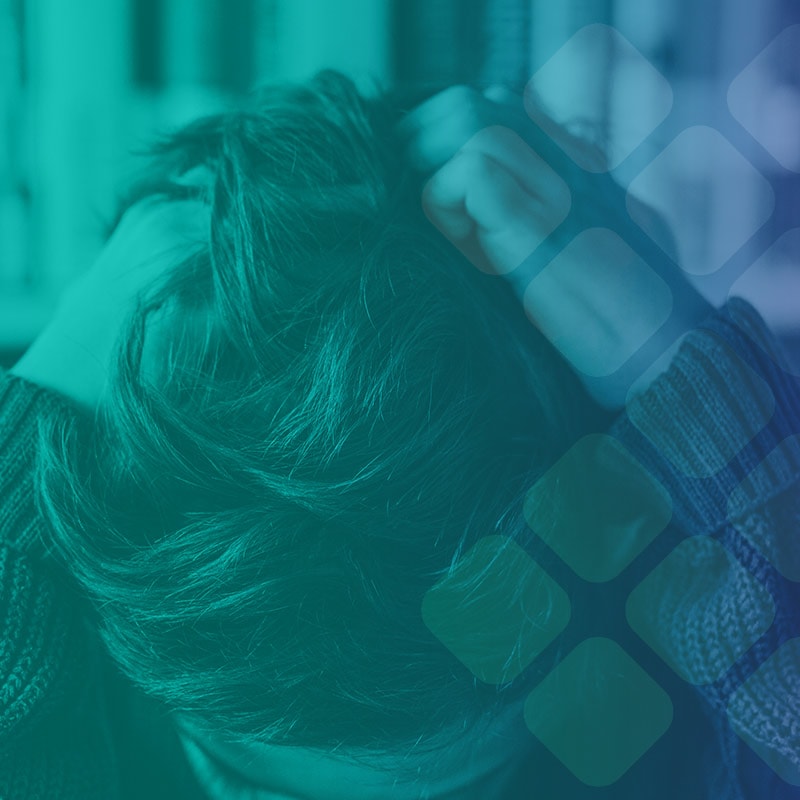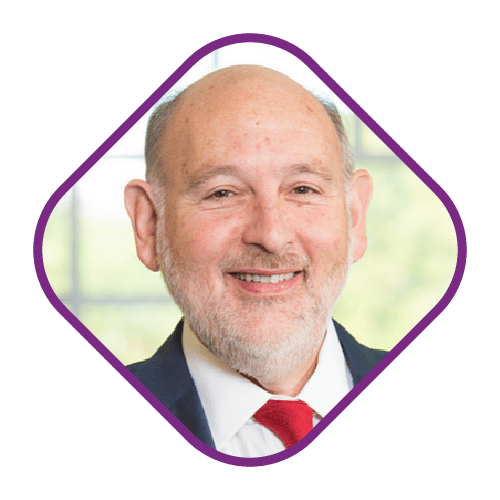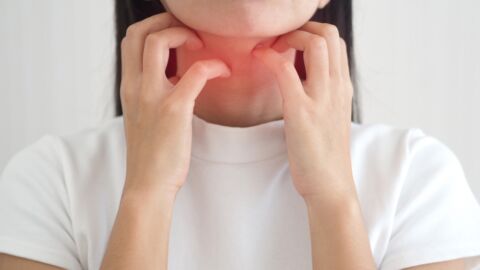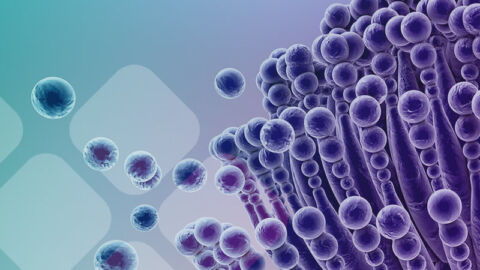Trichotillomania (TTM) is an impulsive disorder that causes people to repeatedly pull out their hair, most often from the scalp. It affects about 1-2% of adults and adolescents, but it is ten times more prevalent in women than in men (APA, 2013). The name is Greek in origin: thrix (hair), tillein (to pull), and mania (madness). The first allusion to TTM may have come from the Greek philosopher Epictetus in 101 AD: “Indeed I think that the men who pluck out their hairs do what they do without knowing what they do…Much from his head he tore his rooted hair. And what does he say himself? ‘I am perplexed,’ he says, ‘and disturbed I am,’ and ‘my heart out of my bosom is leaping.'” (Epictetus, 1981). The first medical case was described by French dermatologist Francois Henri Hallopeau in 1889, who described a young man who pulled out his hair in tufts (Parakh & Srivastava, 2010).
The American Psychiatric Association first recognized TTM as a mental disorder in 1987. The DSM V classifies TTM as an obsessive-compulsive disorder, a change from the DSM IV where is was classified as an impulsive-control disorder (APA, 2013). The cause is complex and unclear. Those with TTM often suffer from other psychiatric conditions such as major depression, generalized anxiety disorder, OCD, eating disorders, substance abuse, and excoriation (skin-picking) disorder (Parakh & Srivastava, 2010).
The last 20 years have begun to shed some light on the disorder with an increase in clinical and research attention; however, there is yet to be a consensus on the best treatment. Traditional treatments primarily involve cognitive-behavioral therapy including habit reversal therapy. Cognitive-behavioral therapy identifies factors triggering hair pulling behavior and then teaches skills to interrupt the behavior. This includes keeping records of hair pulling, being aware of emotional states or environmental cues causing the behavior, or bandaging fingers to interfere with hair pulling. Habit reversal therapy is currently the most effectively used treatment, although treatment varies on an individual basis and relapse is common. Medications used to treat TTM include selective serotonin reuptake inhibitors (SSRIs), olanzapine, clomipramine, fluoxetine, and paroxetine. SSRIs are currently the most commonly used treatment in children and adults (Bruce et al., 2005).
Unfortunately, the effectiveness of these traditional treatments is mixed. One meta-analysis concluded that there was no evidence to demonstrate that SSRIs are more efficacious than placebo in the treatment of trichotillomania (Bloch et al., 2007). According to a Trichotillomania Impact Project survey, treatments for TTM have only been successful with 15% of adult patients and 17% of pediatric patients (Woods et al., 2006). Due to the lack of effective treatment options for TTM, individuals struggling with TTM are seeking alternative treatments that may be more successful than traditional forms of treatment, such as probiotics, N-acetylcysteine, and inositol.
Probiotics are beneficial bacteria that are introduced into the gastrointestinal tract. Interestingly, gut bacteria are able to synthesize the same neurotransmitters that are found in the brain. These gut neurotransmitters have the same structure and are produced via the same biosynthetic pathway as those in the brain. Gut bacteria are able to communicate with the brain through the vagus nerve, a phenomenon known as the “gut-brain connection.” Researchers have found that probiotics can improve many aspects of psychological health including depression and anxiety by modifying the gut microbiome. Probiotics can also directly modulate the immune system (Lyte, 2011).
Success stories attest to the ability of probiotics to offer relief to individuals suffering from TTM. A year after my article “Gut feelings: the future of psychiatry may be inside your stomach” was published on The Verge, I was contacted via email by a gentleman who shared his incredible story on how he was able to cure himself from trichotillomania by using probiotics after reading the article. Here is his story:
“I am a middle aged Caucasian male, and my first history of chronic hair pulling was when I had a very brief episode when I was in the 7th grade. First off, let me explain what I tried to do in the past, all unsuccessfully, to find a solution. I tried pure willpower. I tried discussing my hair pulling with my family doctor. I went to a psychiatrist, one of the most talented psychiatrists in the field, and he told me that there was nothing that psychiatry could do for me. I just happened to stumble onto an article on the web about a psychiatrist that was successfully treating some of his patients with various Obsessive Compulsive disorder symptoms with Probiotics! I started taking two capsules of 30 billion CFU capsules a day on the day after Thanksgiving, 2013. In the last week of January of 2014 I all of a sudden realized, one day, “Hey, wait a minute, I have not pulled my hair for the past 2 weeks now”. It seems I had stopped hair pulling in mid-January and didn’t even notice it until two weeks had gone by. I was hopeful, but skeptical at that point. Over the past 15 years, I have never, ever, had more than a 1 day period of time that I did not pull out my own hair. I continued taking the probiotics every day. As of the day I am writing this, today, July 17, 2014, I have not pulled even one hair since mid-January. Not only have I been symptom free, but I never had to apply any will power or focus on stopping the hair pulling to help me stop. What happened is that the urges did not need to be fought off, they simply dissipated by themselves and have completely disappeared, all by themselves. I did no counseling sessions, no coaching sessions, no group therapy, no psychiatric medications, no psychological treatments of any kind, nothing except the probiotics.”
You can read his full story on https://howicuredmyhairpulling.wordpress.com
N-acetylcysteine (NAC) also shows promise for reducing compulsive behavior. NAC is an amino acid that is converted in the body to a powerful antioxidant known as glutathione. In a double-blind trial, 50 adults with trichotillomania were randomized to NAC (1,200-2,400 mg/d) or placebo for 12 weeks. Those receiving NAC significantly improved on measures of urges to pull hair, actual amount of pulling, perceived control over the behavior, and distress associated with hair pulling. Of those taking NAC, 56% were “much” or “very much” improved compared with 16% of those taking placebo (Grant et al., 2009).
There is also emerging evidence for inositol as treatment for TTM. Inositol is a sugar produced by the human body from glucose. The sugar is found in many foods, particularly fruits such as cantaloupe and oranges. Inositol is a signaling molecule involved in many important functions such as nerve guidance and the breakdown of fats. In the past, inositol has been used effectively for depression, anxiety, and OCD. Two case studies have been documented of young women with TTM who befitted from 18 grams per day of inositol (Seedat et al., 2001). Inositol is thought to help regulate serotonin levels, which is particularly relevant for disorders including TTM, OCD, depression, and anxiety that may be caused by low levels of serotonin.
Indeed, disruptions in the gastrointestinal tract or gut microbiota can manifest as physiological and psychological symptoms. Fortunately, several animal studies have found that the introduction of probiotics were effective at modulating the gut microbiota. While the complex connection between the gut and brain continue to be examined, the available research suggests that probiotics may be a promising intervention for several illnesses including depression, anxiety, and compulsive disorders.
References
- American Psychiatric Association (APA). (2013). Diagnostic and statistical manual of mental disorders (5th ed.). Arlington, VA: American Psychiatric Publishing.
- Bloch, M. H., Landeros-Weisenberger, A., Dombrowski, P., Kelmendi, B., Wegner, R., Nudel, J., & … Coric, V. (2007). Review: Systematic Review: Pharmacological and Behavioral Treatment for Trichotillomania. Biological Psychiatry, 62(Bipolar Disorder and OCD: Circuitry of Impulsive and Compulsive Behaviors), 839-846.
- Bruce, T. O., Barwick, L. W., & Wright, H. H. (2005). Diagnosis and management of Trichotillomania in children and adolescents. Pediatric Drugs, (6), 365.
- Epictetus, Long, G., & Epictetus. (1891). The discourses of Epictetus ; with the Encheiridion and fragments / reprinted from the translation of George Long. London : G. Bell and Sons, 1891 ([London] : Chiswick Press).
- Grant, J., Odlaug, B., & Suck, W. (2009). N-acetylcysteine, a glutamate modulator, in the treatment of trichotillomania: A double-blind, placebo-controlled study. Archives Of General Psychiatry, 66(7), 756-763.
- Lyte, M. (2011). Probiotics function mechanistically as delivery vehicles for neuroactive compounds: Microbial endocrinology in the design and use of probiotics. Bioessays, 33(8), 574-581.
- Parakh, P., & Srivastava, M. (2010). The Many Faces of Trichotillomania. International Journal of Trichology, 2(1), 50–52.
- Seedat, S., Stein, D. J., & Harvey, B. H. (2001). Inositol in the treatment of trichotillomania and compulsive skin picking. The Journal Of Clinical Psychiatry, 62(1), 60-61.
- Woods, D. W., Flessner, C. A., Franklin, M. E., Keuthen, N. J., Goodwin, R. D., Stein, D. J., & Walther, M. R. (2006). The trichotillomania impact project (TIP): Exploring phenomenology, functional impairment, and treatment utilization. Journal Of Clinical Psychiatry, 67(12), 1877-1888.





